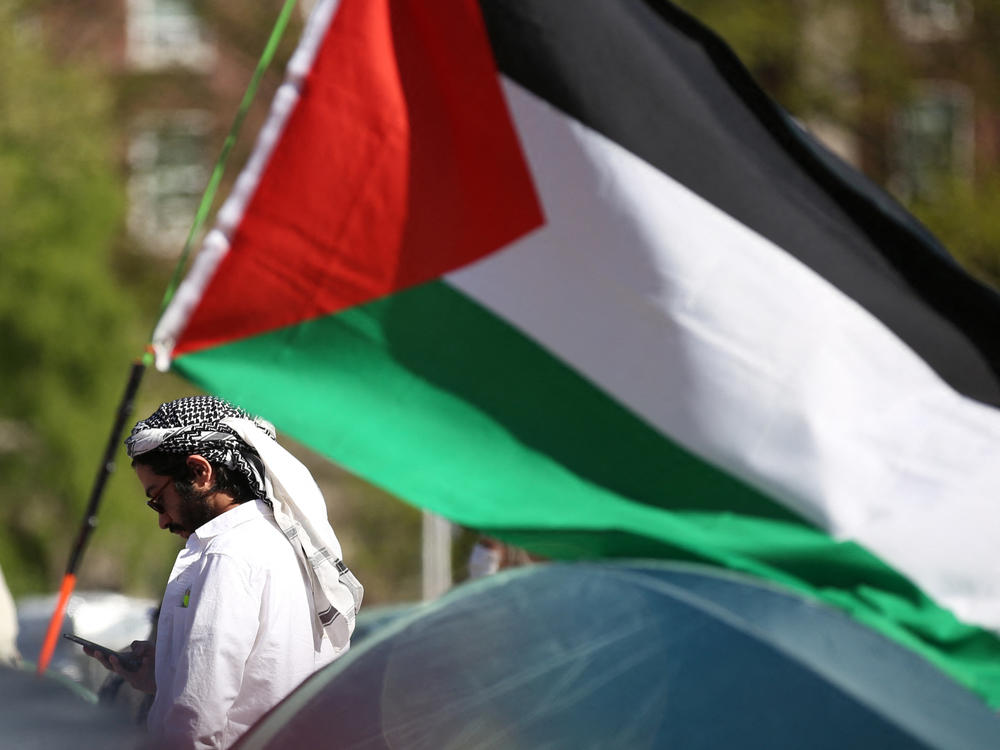Section Branding
Header Content
How today's college protests echo history
Primary Content
You're reading the Consider This newsletter, which unpacks one major news story each day. Subscribe here to get it delivered to your inbox, and listen to more from the Consider This podcast.
1. The 2024 protests have an "uncanny" resemblance to the 1968 student protests.
From coast to coast, dozens of universities are seeing pro-Palestinian protests and encampments on campuses across the U.S.:
- Boston police took down a pro-Palestinian encampment at Emerson College, clashing with protesters and taking more than 100 into custody.
- In just the past two weeks, at least 800 people have been arrested on college campuses, with some students facing suspension. Some universities are grappling with whether to proceed with upcoming graduation ceremonies.
- The University of Southern California put out a statement recently canceling its main graduation ceremony due to "safety measures."
The last time the U.S. saw such fervor over protests on college campuses was some five decades ago.
Frank Guridy is a professor of history at Columbia University, where roughly a hundred students have been arrested.
Guridy teaches a class about the 1968 protests against the Vietnam war that took place on Columbia's campus. He teaches in one of the buildings that students occupied in 1968 – Fayerweather Hall.
"As in 1968, the Columbia students of 2024 are absolutely galvanized by what's transpiring in Gaza, in the Middle East," Guridy said in an interview with NPR.
"In that sense, it is an uncanny resemblance to what transpired in the late sixties in this country, where U.S. students and other people in this country were inspired to speak out and mobilize against what they saw as an unjust war in Vietnam."
2. Parallels and differences.
In Guridy's class, students read historical texts that put the 1968 protests in a larger historical context. Students visit archives at Columbia and other parts of the city. At the end of the semester, they complete a research paper on what they've learned about the 1968 student protests.
"Students on this campus, a generation of students who have no direct connection to '68. Yet what they see in it is as a source of inspiration," Guridy said.
A key similarity between the protests of 1968 and 2024 are the calls for divestment. In the '60s, students at college campuses tried to get their administrations to divest from the defense industry or anything connected to the war in Vietnam.
Guridy adds that the strategy of divestment has a long history that can even be traced back to the 1930s, when people were calling for the boycotting of Nazi Germany.
Today's students are also targeting the financial choices made by their administrations.
Two of the main differences: the U.S. doesn't have boots on the ground in Gaza, and American college students aren't facing the draft.
"The draft was a real reality, including for privileged college students in the late 1960s. And so the sense of urgency was slightly different for the college students and the antiwar movement at that time," says Guridy.
3. Lessons learned from 1968 protests.
Several student activists who spoke to NPR cited the organizing of students in 1968 as inspiration for their own movements.
Matthew Vickers, a junior at Occidental College in Los Angeles is one of the many students to set up encampments protesting Israel's war in Gaza.
"Most of the Palestinian solidarity movement has taken direct tactical and moral inspiration from the movements of the sixties. I think the parallels cannot be more obvious," said Vickers.
Alifa Chowdhury is a junior at the University of Michigan, and one of the protest organizers on her campus. Their encampment on the Diag is on the exact spot where students in the Sixties marched against the Vietnam War.
"So we're building on things that have been done before, this is not a new phenomenon. We stand on that protest history today," said Chowdhury.

